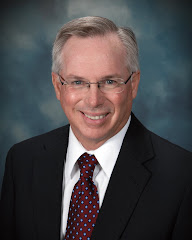Kansas Sesquicentennial
Historian Carl Becker once opined that the history of Kansas reflects the ideals of America. He wrote: “The Kansas spirit is the American spirit double distilled.” Kansans possess a distinct character, a fierce independence, and an exceptional work ethic. As we celebrate this occasion I encourage you to spend time learning more about our rich heritage, and take pride in that unique Kansas spirit. Continue to celebrate Kansas’ sesquicentennial and history at www.ks150.org and www.kshs.org
Suitable to Whom
As one of his initiatives to streamline and modernize state government, Governor Brownback has requested that the Kansas legislature work toward defining the term “suitable education.” The need for a widely accepted and defendable definition is the result of language in the Kansas Constitution, which states that “The Legislature shall make suitable provision for finance of the educational interests of the state.” That single sentence in the constitution has led to much confusion, discussion, and even expensive lawsuits in the past, precipitated in part by the fact that education comprises a very large part of all state expenditures. Governor Brownback rightly recognizes that it would be a great help if we could come up with a workable definition of what “suitable” really means.But this is not the first time that pony has been saddled up. In fact since 1992 the legislature has provided at least four different definitions. Three have since been repealed and the fourth is still on the books. And yet the controversy continues. This demonstrates how difficult the task really is.
My concern is that some folks in the Statehouse look forward to developing a definition of “suitable” that would include the basics of education but little else. Legislators looking to minimize the state’s obligation would like that outcome. Ditto for some folks from the more affluent school districts. Here is what one representative of Shawnee Mission School District had to say: “Once the state knows what ‘suitability’ is, and the Legislature funds it, then we’re hoping the state wouldn’t have a reason to hold back districts who want to go above that.” I have heard a fellow legislator state that Kansas should fund the basics and then set individual school districts free to fund whatever level of education they want for their children.
Well guess what. Every Kansas parent, and school board member, want the very best education for their children. That is just as true in Oakley as it is in Overland Park or Olathe. It is just as true in Wichita County as it is in the City of Wichita. We all want the best for our children. The problem is that some districts can afford to provide it, and other districts cannot. And that would lead to unequal educational opportunity, and students would emerge poorer school districts unprepared to be fully productive members of 21st Century society. That is not a good outcome for those students, those districts, or the State of Kansas.
If Kansas were to adopt a definition of “suitable” that only covered a minimal education, the only choice local school districts would have to finance anything above that would be to raise the funds through property taxes. But in 2010 the total mill levy in Leoti was 229. In Quinter it was 204 and in Sharon Springs it was 214. Compare these numbers to the 110 paid by residents of Overland Park or the 120 mills paid by folks in Wichita and you start to get a sense of the problem. Property taxes are already nearly double in much of rural Kansas compared to property taxes in the larger cities. Forcing more educational expense to be funded by property taxes will worsen the disparity and increase the competitive disadvantage rural Kansas presently faces.
Rural school boards will be left with an incredible challenge. They may choose to accept a lower standard of education and risk losing students and families to districts that can offer more. Or they can choose to raise property taxes even farther, and increase the stifling effect the burdensome tax rates would have on economic activity. In the last ten years many rural Kansas counties have suffered double-digit population declines, including every one of the eight counties I serve. Either of these choices would only accelerate the depopulation of rural Kansas. That, to me, is not suitable. In fact, it is not acceptable. We can, and we must, do better.
Websites of Interest
Which countries match the GDP and population of America's states? Did you ever wonder what country was equivalent to Kansas in GDP and population? It turns out the answer is New Zealand. Who knew?
Newspaper Front Pages Worldwide For those who really want to stay “in the know”, this site has links to many newspapers throughout Kansas, the U.S., and even the world.
Cowboy Logic: If necessity is the mother of invention, why does so much unnecessary stuff get invented?
Quote of the Week: “Opportunity is missed by most people because it is dressed in overalls and looks like work.” ~ Thomas Alva Edison
Sermon in a Sentence: The trouble with “have a nice day” is that it puts all the pressure on you.





No comments:
Post a Comment